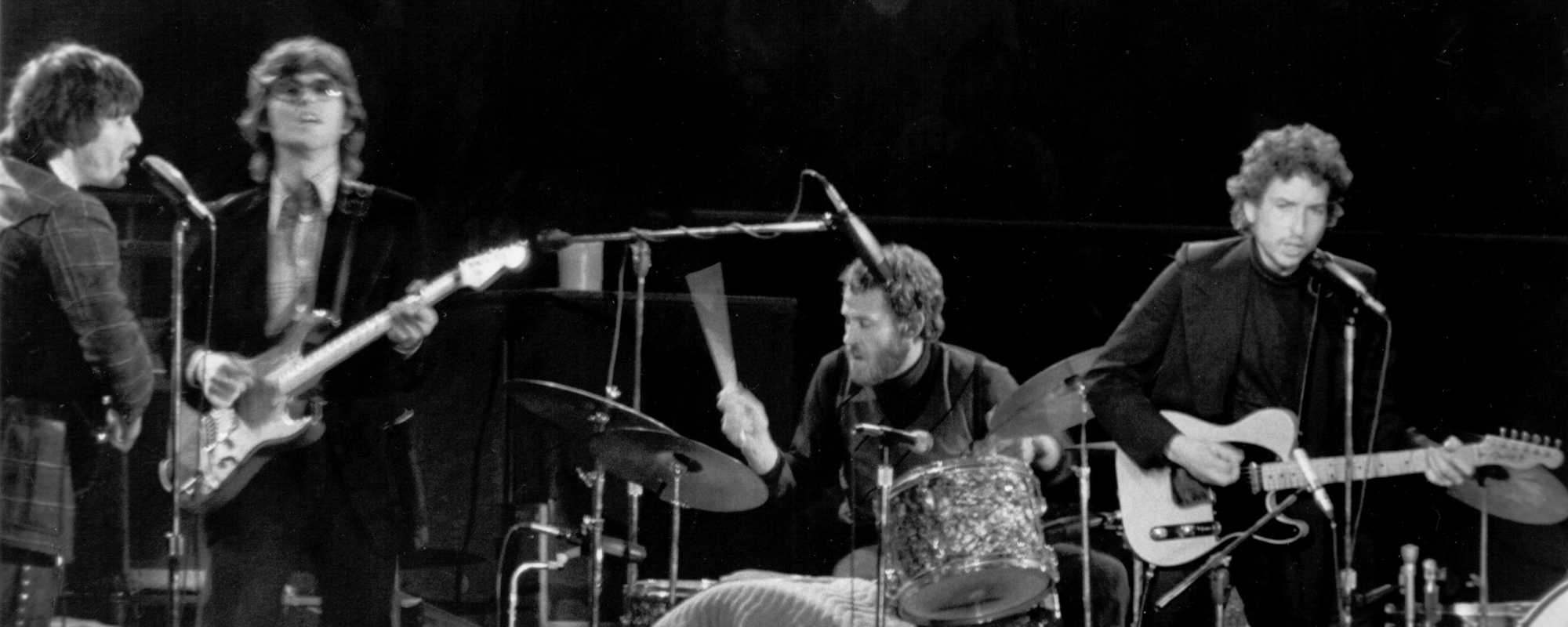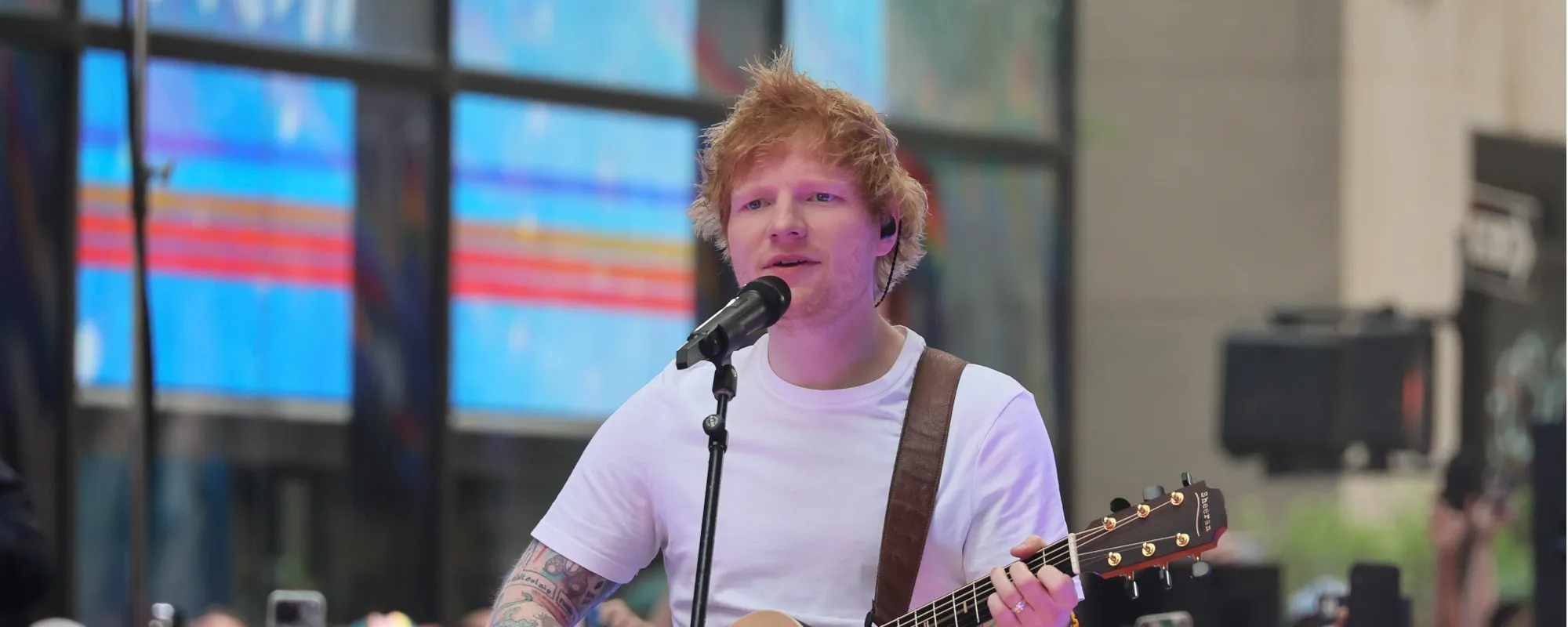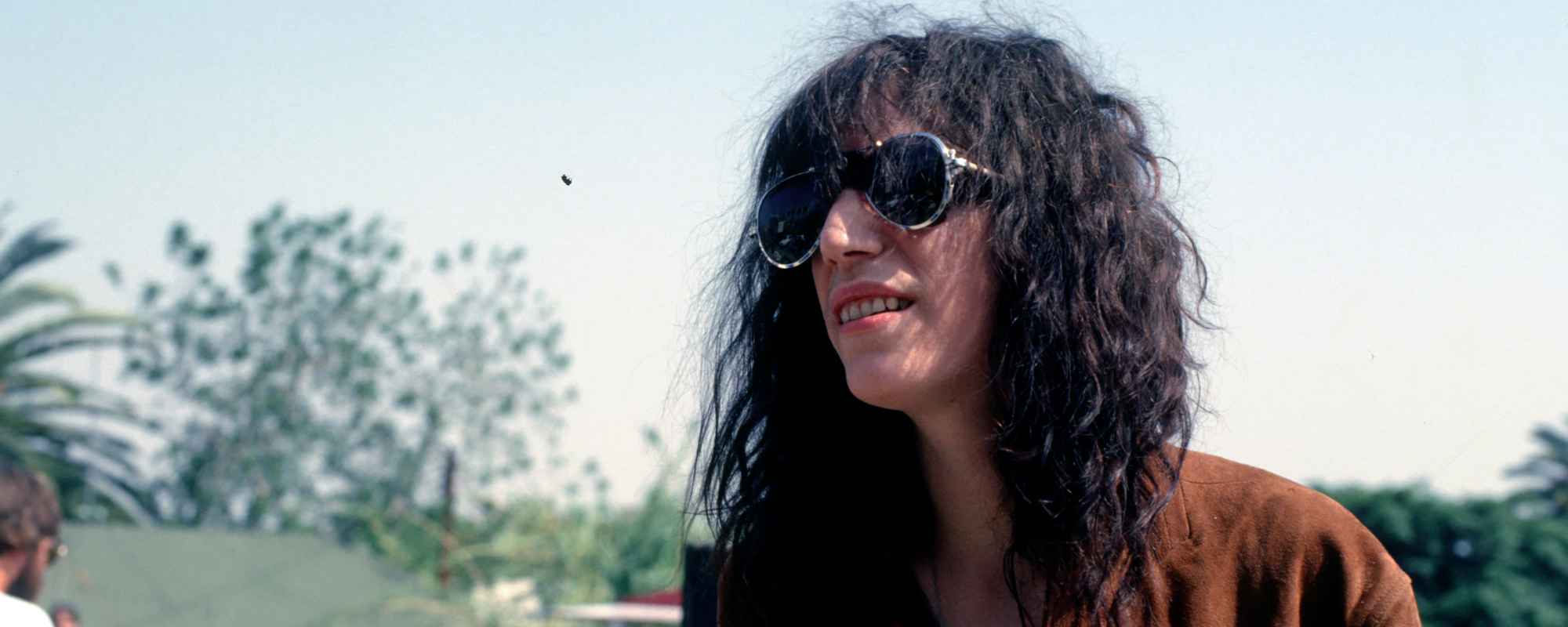On July 3, 1973, David Bowie gave all new meaning to the parental adage, “I brought you into this world, and I can take you out of it,” when he killed his alter ego, Ziggy Stardust, in front of a crowd of five thousand shocked fans. Luckily, when one kills their alter ego, there is no external violence to look away from, no stomach-turning conflict, no gruesome aftermath to clean up.
Videos by American Songwriter
In this case, the killing was internal, quiet, and, in the case of the Spiders From Mars, Ziggy’s iconic backing band, irritatingly unexpected.
From Struggling Songwriter To Extraterrestrial Rock Icon
Ziggy Stardust seemed to burst onto the scene in a flash of bright red hair, pale white skin, dazzling jumpsuits, and sky-high platforms. But the alter ego David Bowie created in the early 1970s was always there, lurking under the surface of its creator’s androgynous, ever-creative demeanor. Bowie’s commercially unsuccessful debut from 1967, the far more popular sophomore follow-up from 1969, The Man Who Sold the World from 1970, and Hunky Dory from 1971 all brought Bowie one step closer to the alien idol behind songs like “Starman” and “Moonage Daydream.”
The creation of Ziggy Stardust provides a fascinating glimpse of Bowie’s intellect as an artist and industry veteran. With one finger on the pulse of the global music scene, Bowie knew that he needed to make major changes before he could achieve the success he so hungrily sought throughout the late 1960s. “What I did with my Ziggy Stardust was package a totally credible, plastic rock ‘n’ roll singer,” Bowie later said, per Rolling Stone. “My plastic rock ‘n’ roller was much more plastic than anybody’s. And that was what was needed. Until that time, the attitude was, ‘What you see is what you get.’ It seemed interesting to try to devise something different, like a musical where the artist onstage plays a part.”
Bowie blended his Stardust persona into his style, attitude, and the music itself. And it worked. Not only did Bowie achieve a new level of stardom, but he also paved the way for new wave and glam rock artists who would come after him. These younger disciples, however, wouldn’t have a chance to say they were Ziggy Stardust’s contemporaries. The alien died before they could.
David Bowie Killed His Alter Ego, Ziggy Stardust, Live On Stage
A multitude of external factors led David Bowie to the day he killed his alter ego, Ziggy Stardust, on stage. Perhaps most crucially, Bowie felt like Stardust had run its course. Any further development would begin to dilute and sully the extraterrestrial rock icon’s legacy. Bowie was a true artist’s artist, and by 1973, a new artistic era was calling his name. Additionally, ticket sales were suffering on the third leg of what was already a massive and arduous global tour. Ziggy’s backing band, the Spiders from Mars, were fighting amongst themselves. All signs pointed to the nearing end of Ziggy Stardust. On July 3, 1973, Bowie shoved the final nail in Ziggy’s coffin during a performance at the Hammersmith Odeon in London.
“Not only is this the last show of the tour,” Bowie addressed the crowd just before playing “Rock and Roll Suicide,” which appropriately describes the end of his alter ego’s time on our home planet. “But it’s the last show that we’ll ever do.” People in the crowd shrieked. Some members of the Spiders of Mars had no idea that Bowie planned on making such a career-altering announcement. No one, perhaps not even Bowie himself, knew what the future held for the British rock ‘n’ roller. But of course, he didn’t die. Ziggy did.
Bowie (and his backing band) would be back before long with a new style, sound, and artistic vision. The “Changes” singer spent the years immediately following his Stardust era distancing himself from the alien persona, although he would eventually return to the iconic music of that time. Bowie had solidified his status as an artist impossible to pin down, which is exactly what he wanted when he turned himself into an alien in the first place.
Photo by Koh Hasebe/Shinko Music/Getty Images









Leave a Reply
Only members can comment. Become a member. Already a member? Log in.